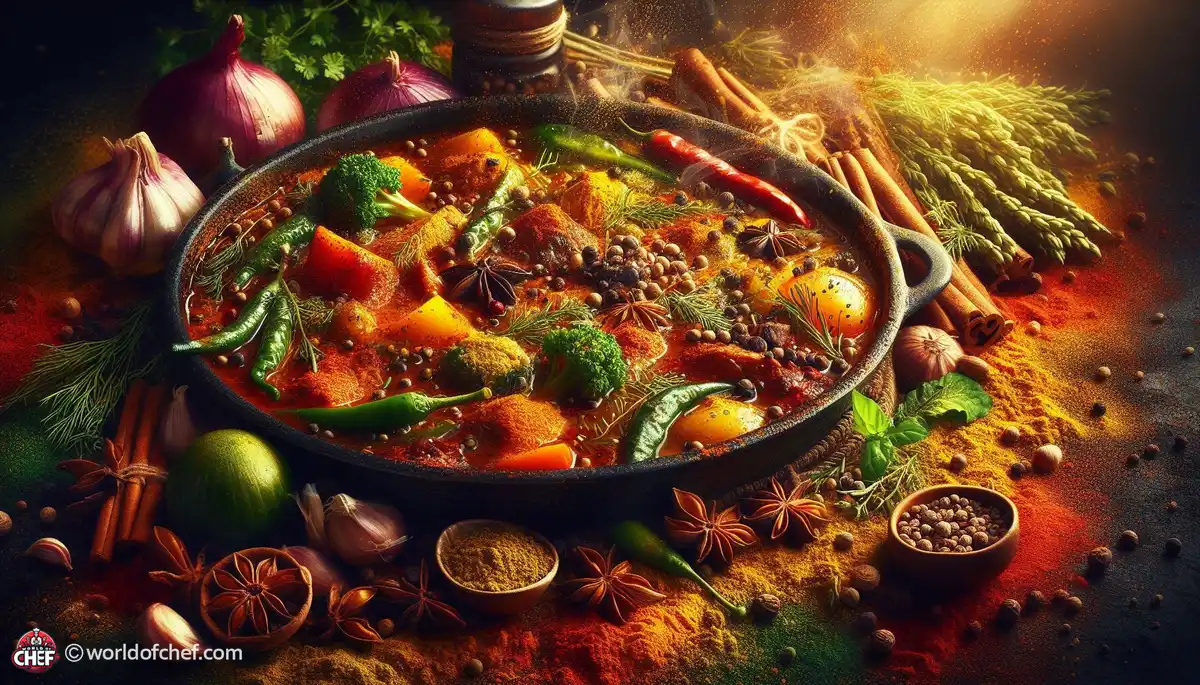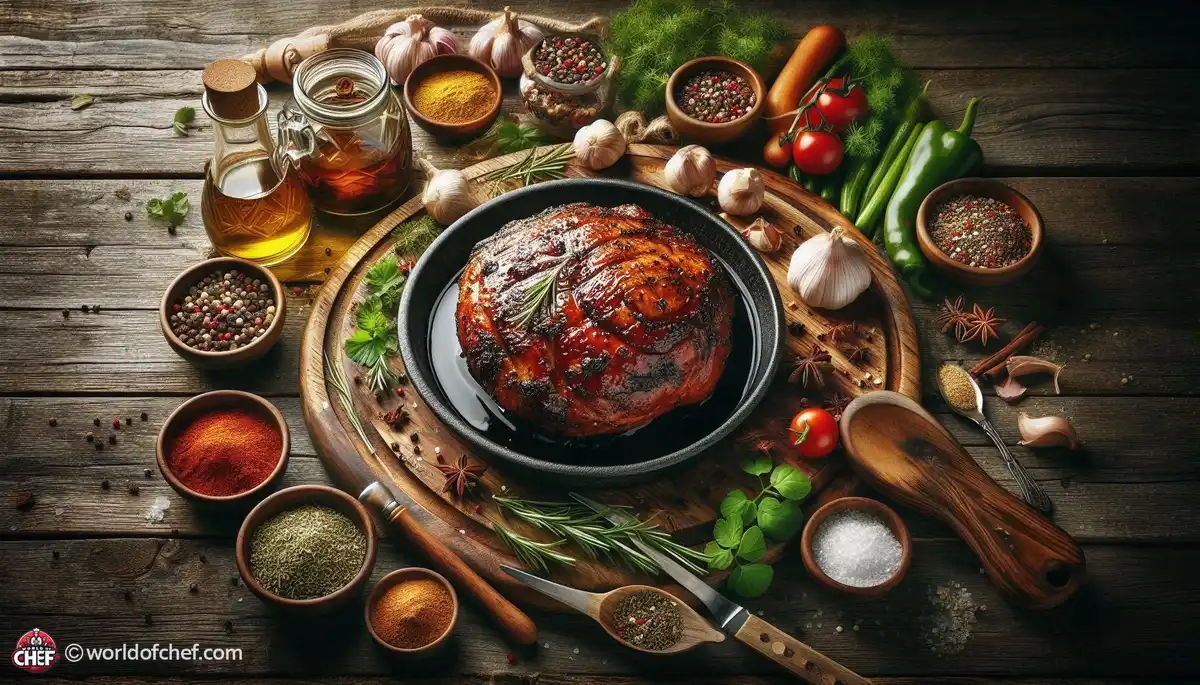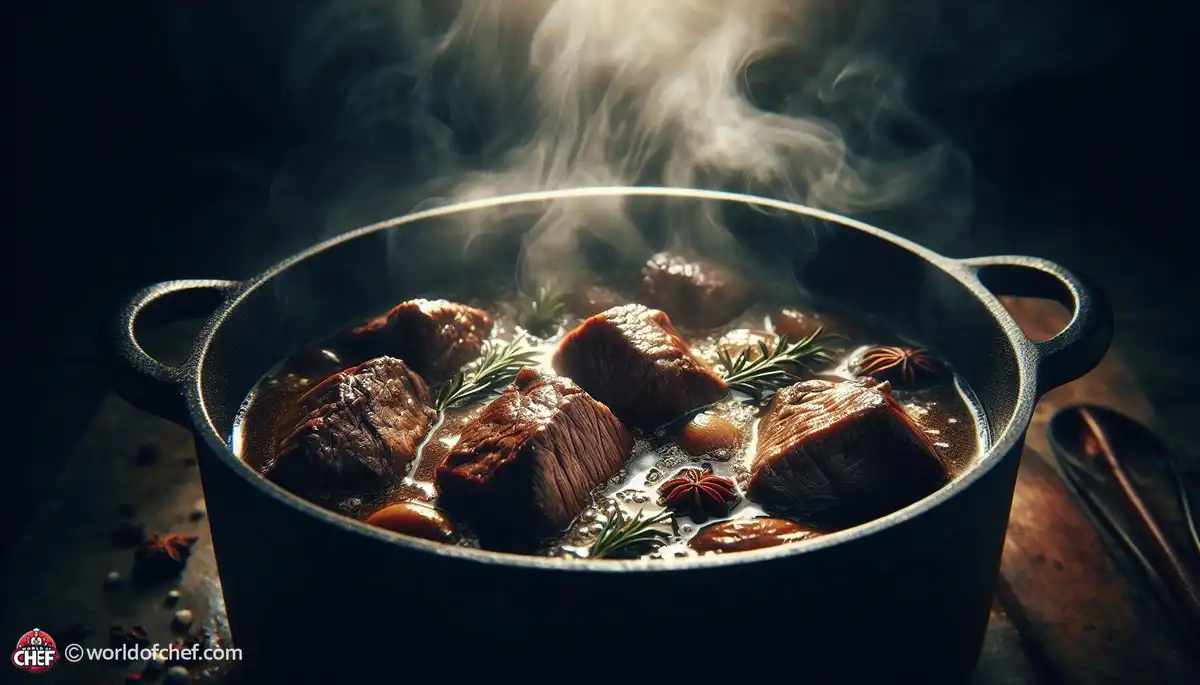
Simmering with Spices: Infusing Flavor into Your Dishes
Emery Donley - Oct 8, 2024 - 8 min read


Marinades are unsung heroes in the kitchen. While ordinary ingredients, marinades can transform them into a great mouthful. Through their very nature, the marinade is a flavor bomb combining the symphony of acids, oils, herbs, spices, and aromatics. It not only adds complexity to the meats and vegetables but also tenderizes and moistens it to taste succulent and delectable.
The magic of marinades is that they are incredibly versatile. You can choose to go for flavors from zesty, citrusy punch to smoky barbecue essences or aromatic herbaceous Flavor Profiles. Really, it all depends on what kind of combination of ingredients will evoke the desired flavor profile to be achieved. It simply means knowing how specific ingredients interact with one another and understanding their subtleties is the key to enhancing your roasted dishes with extraordinary marinades.
Patience is indeed the virtue in marinating. While one may be impatient to hasten the procedure, time needs to be allowed for sufficient penetration of flavors into and merging with the ingredients in order to achieve the perfect result. Marination time depends upon the type of meat or vegetable, which ranges from a few hours up to overnight. This investment in time pays well in the form of delicious, juicy, and flavorful roasted dishes with your taste buds tingling in satisfaction.
Acids, which include lemon and lime juices, vinegar, and yogurt, serve as the core of many marinades. They enhance the flavor by giving an acidic taste, but perhaps more importantly, they loosen up the connective tissue in the meat, making cuts that are normally tough eatable. Additionally, it is through acids that much of the flavor is passed on to the food while cooking.
Oils are the foundation of marinades, bringing richness, moisture, and an extravagant mouthfeel to roasted dishes. While olive oil is the most common, mainly because of its fruity flavor and versatility, there's sesame oil, avocado oil, and infused oils, which can be very interesting for your marinades. When it comes to picking oils, always select high-quality ones, and that way, you'll get the superior flavor and texture in your roasted creations.
Herbs and spices form the flavor powerhouses in your marinades that give you elevated roasted flavors, rather than ordinary. Cumin provides warmth; garlic a pungency, or it's the fresh cut scent of cilantro for any roast. There's experimenting with herbs and spices as long as one pleases: mix up herb or spice combinations that tantalize your taste buds when serving these signature marinades.
There are two basic methods in marinating: coating and submerging. Coating is rubbing gently the marinade on the ingredient's surface to ensure an even coat, which tends to be good for delicate items like fish fillets, and thinly sliced vegetables. Submerging, on the other hand, involves steeping the ingredients fully into the marinade for maximum flavor penetration. This method is well used for large cuts of meat and hearty vegetables. The longer they are exposed to the marinade the better they are.
The proper storage and handling of food items prevent foodborne diseases and ensure the success of your marinated dishes. It is always a must to marinate in the refrigerator because cold temperatures slow down bacterial growth. Moreover, non-reactive containers such as glass or food-grade plastic prevent unwanted flavors that are usually imparted by metal containers. Never forget to discard leftover marinade that came into contact with raw meat to avoid cross-contamination.
The secret to awesome marinades is the taste. Taste and season the marinade before you pour it onto your ingredients. That way, you'll get just the right sweetness, saltiness, tartness, and umaminess. Keep in mind that flavors are amplified whenever you marinate ingredients, so under-season a bit.
Citrus is one of the traditional marinades that bring roasted dishes alive with the zest of sour flavors. It is prepared with freshly squeezed citrus juices, like lemon, lime, and orange, mixed with olive oil, garlic, and herbs such as thyme and rosemary. This marinade is versatile and goes well with chicken, fish, and vegetables, bringing them a refreshing zestiness to the palate.
For those seeking bold Asian flavors, this soy ginger marinade does the trick. A combination of soy sauce, grated ginger, garlic, sesame oil, and a touch of sweetness from honey or brown sugar makes for a savory-sweet marinade full of punch. Beef, pork, or tofu take on a rich umami flavor with a hint of heat when marinated with this mixture, making it ideal for stir-fries, grilled skewers, or roasted vegetables.
Transport your taste buds to sun-kissed Mediterranean beaches with the aroma of a fragrant herb-infused marinade made of olive oil, garlic, lemon zest, and a bouquet of fresh oregano, basil, and parsley. It's an excellent marinade that can be used on lamb, chicken, or even vegetables, which will flavor them with the bright scents of the Mediterranean area. Serve the roasted ones with tzatziki or hummus on the side for the authentic taste.
Do always preheat your oven when you roast marinated ingredients. This ensures even cooking, along with the best caramelization that one can get from cooking. In this process, you will be assured that your dishes will be well-cooked and beautifully browned.
Put the marinated ingredients on a roasting rack set up in a baking sheet for improved air circulation and browning.
The elevation above any collected juices prevents sogginess and helps to prevent the circulation of heat unevenly.
Don't gobble the roasted dishes right out of the oven. Let them sit for a little while, then serve them. At that point, the juices will have had time to reorganize themselves; therefore, your dish should be quite moist and flavorful.
This is the end mastering the art of marinades, which unlocks your possibilities in flavor for roasted dishes. Equipped with the basics of marinades, uncovering what's in them, mastering marinating techniques, and finding various types of marinades, take your culinary masterpieces to new heights you never imagined possible. With some patience, experimenting, and a touch of creativity, you will be on your way to becoming the marinade maestro of your kitchen. So onward we go, set loose our culinary muscles, and let our taste buds embark on this great taste journey!

Emery Donley - Oct 8, 2024 - 8 min read

Russell Comeaux - Oct 8, 2024 - 8 min read

Walter Backus - Oct 7, 2024 - 8 min read

Samantha Thames - Oct 7, 2024 - 6 min read